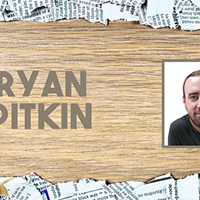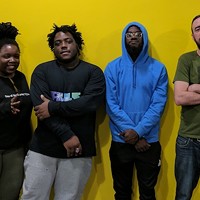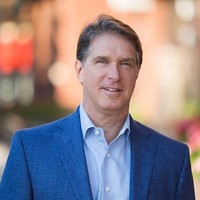The sound and the fury of noise ordinances
City revives years-old discussion, frustrating businesses and relieving some residents
By Ryan Pitkin @pitkin_ryanRob Nixon feels like he's been here before.
The longtime owner of Jackalope Jack's Restaurant & Bar is sitting in The Peculiar Rabbit, his newly opened business in the heart of Plaza Midwood, discussing the possibility that he may have to close its doors for good in a few months.
Officials recently resumed discussions that could further regulate how much noise comes from local restaurants and bars. Despite a two-year-old ordinance — which business owners like Nixon considered a suitable compromise with city officials — some residents are still complaining that many bars and restaurants are too loud. As a result, the city is considering prohibiting bars — not restaurants, which are absolved under the current ordinance — within 400 feet of a residence from playing music between midnight and 2 a.m., when they close.
But solving the problem isn't as simple as pulling the plug.
What is a restaurant, a bar, a nightclub? What does the city consider entertainment? If it is to enact any new laws, the city may have to change its decades-old definitions of such establishments and activity. Currently, nightclubs are considered businesses that serve alcohol and provide entertainment, and restaurants are those serving food and beverages. But since many businesses serve both food and alcohol, they wouldn't fall into any one category. Because "entertainment" isn't defined either — though it has been considered by some code enforcement officials to include pool tables and televisions — the confusion only spreads and deepens.
Four meetings held during the latter half of 2011 tried to come up with definitions, but progress wasn't made and the meetings stopped in December 2011. But as of Jan. 24, talks have resumed. About 120 people — mostly restaurateurs and bar owners — expressed concerns at a meeting last week that any new regulations beyond the 2011 noise ordinance would negatively affect business. The Charlotte Mecklenburg Planning Department called the meeting by request of City Council.
The noise ordinance, which took effect in June 2011, limits how loud restaurants and bars within 400 feet of residences can play music after 9 p.m. on weekdays and after 11 p.m. on weekends. (Incidentally, none of the rules affect businesses in Uptown, as that area is classified as an Urban Mixed Use District.) Many restaurant owners accept the 2011 ordinance and comply with it.
Debra Campbell, director of the Charlotte Mecklenburg Planning Department, began the meeting by saying, "We want you all to understand that we understand how important of an entity you are to this community," addressing restaurateurs and nightclub owners in the crowd.
Last year, Charlotteans spent about $2.4 billion on food and drink in local bars, restaurants — whatever. Including waiters, chefs, barbacks and hosts, the industries comprise about 28 percent of the city's workforce.
Despite his contribution to the economy, Nixon, Jackalope Jack's owner, said he is not feeling so appreciated these days. He says that Jack's would lose about $250,000 in annual sales and between five and eight employees if he was forced to shut off music and entertainment after midnight. He recalled a recent night when The Peculiar Rabbit's stereo system malfunctioned for about an hour. "People just got up and left," he said.
Another reason the Thursday meeting was called was to revisit the concerns of some residents in the Elizabeth, Plaza Midwood and NoDa neighborhoods. Frank Caldwell has lived in Elizabeth for more than 60 years and now finds himself near a cluster of bars, including Jackalope Jack's, Kennedy's and Philosopher's Stone. He was at the meeting to air some of his frustrations.
"I can't sleep until after 2 a.m. every night," he told the crowd. "My wife has to put in ear plugs before she goes to sleep. And that's seven days a week."
Some residents also complained about crime.
Dianne Langevin lives in Winterfield, near North Sharon Amity Road and Central Avenue, and leads that neighborhood's Crime Watch. For years, El Gavilan, a local bar, troubled her and her neighbors.
"At 2 a.m. there was drinking, drunk people, fights, loud music," Langevin said. "People have been cut out there."
She started attending the fall 2011 meetings and realized that one solution couldn't solve everything. Closing El Gavilan — and other bars in her neighborhood — certainly wasn't the answer. "I began talking to some other owners. They have very good businesses, [and] we don't want them to suffer," Langevin said. "Going to meetings opened my eyes."
Langevin began working with Charlotte Mecklenburg Police to increase officer presence in her neighborhood. She said disturbances have calmed down since then.
But turning to cops has brought Caldwell no such luck. "I call the police all the time, and I see them show up out there, but nobody quiets down," he said.
City officials will gather public input from the Jan. 24 meeting and others held throughout the spring and bring their findings to City Council. The city board could vote on a new ordinance or an amendment to the current ordinance — or a host of other measures, though no one knows what, exactly — in June.
Natalie Beard is looking forward to more productive discussions at upcoming meetings. "It takes a lot of measured patience," said the president of McCrorey Heights' neighborhood association. "Everyone accepts the need for economic development, but the impact of development on residential communities is as important."
The next meetings will be held Feb. 19, March 5, March 21 and April 2, ending in a public forum that will include City Council members in May.
Speaking of...
Latest in News Feature
More by Ryan Pitkin
-

You're the Best... of Charlotte
Oct 27, 2018 -

Listen Up: Cuzo Key and FLLS Go 'Universal' on 'Local Vibes'
Oct 25, 2018 -

Listen Up: KANG is Back and Bla/Alt on 'Local Vibes'
Oct 18, 2018 - More »
Calendar
-

Queen Charlotte Fair @ Route 29 Pavilion
-

NEW WINDOW GALLERY-Pat Rhea-ACRYLIC PAINTINGS-April 05-30 2024 VALDESE, NC 28690 @ New Window Gallery/Play It Again Records
- Through April 30, 12 p.m.
-

TheDiscountCodes
-

"Blood Residue Analysis of Paleoamerican Stone Tools in the Carolinas" @ Native American Studies Center
- Fri., April 26, 12-1 p.m.
-

Brightfire Music and Arts Festival @ GreenLife Family Farms















